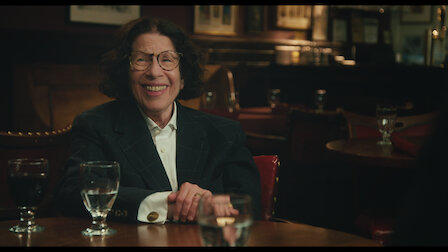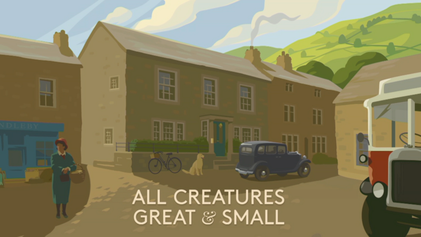Apparently we’ve survived January 2021 already. As with all of 2020, I have spent the month catching up on a slew of movies and below are some mini-reviews of an esoteric collection of films that could help you while away the hours. Get excited!
Sylvie’s Love: Starring Tessa Thompson as the eponymous Sylvie, this is a swoony romance set in the 1950s and early 60s. I don't want to give away any details, because like with any good romance, the joy is in watching two people fall in love, the obstacles that fall across their path, and whether or not they will overcome these hurdles to reach their happily ever after. Instead, I'll focus on why it's a gorgeous watch.If you're a fan of classic movies or TV (think I Love Lucy, which does feature in this film!) you may have some sense of what to expect. Costume designer Phoenix Mellow has brought out some truly splendid outfits and Tessa Thompson is resplendent in many a fine outfit throughout this movie. In fact, during the end credits, I was very pleased to see the sentence, "Ms. Thompson's gowns provided by Chanel." Her co-star, Nnamdi Asomugha, is no slouch as well, and together, the two share a burning, yearning chemistry that echoes all the dreamy love stories of this era.
Of course, what makes Sylvie's Love extra special is that it is a Black romance. In an interview with Tessa Thompson, she mentioned how rare it was for her to get such roles or see such women portrayed on screen. Black stories often have to be about slavery, crime, or racism. There are still pitifully few films where you can just watch two Black people fall in love and go through the ups and down of all that entails. But this is still a movie about a Black woman in 1950s America, and I found the story particularly fascinating given the career path Sylvie chooses at a time when most women were just expected to be passive housewives. It's a lovely, well-written, gentle movie that will make you smile when you're done. Watch it.
Wonder Woman 1984: Speaking of period films, if you needed a reminder of what the 80s were like, Patty Jenkins has you covered with this sequel. Now I absolutely adored 2017's Wonder Woman and was very excited to watch this movie, but oof. I was not a fan. I watched it over Zoom with two college friends and when we were done, we agreed that this film was a hot mess. In terms of capturing the aesthetic of the era, it's spot-on: the costumes, music, and settings (they rebuilt an entire mall to make it as 80s as possible!) are wonderful. But hoo boy, this story is inexplicable.I know it's silly to complain about plot holes when you're talking about a superhero movie. The whole point is that the regular laws of physics don't apply. But the art of great genre fiction is that the world you're in still does adhere to SOME rules. Unfortunately, the plot of this film largely revolves around a wishing stone that seems to have a new set of rules every time it is used. While we were watching this film, the majority of my texts to my friends were variations on "Wait, you can do THAT with the stone now?" It was all a bit much. And Pedro Pascal seemed to be having a fine time chewing up all the scenery as one of the movie's villains, but we were also constantly perplexed as to what accent he was doing at any given moment.
Most importantly, the love story made Wonder Woman seem a bit hapless, to a point where Steve (Chris Pine) had to mansplain feminism to her and how she could still be complete without a man. I realized that what I missed most from the original movie was the balletic action scenes, where there was more hand-to-hand combat and you could see the Amazons whale on the villains. In this movie, there's an over-reliance on all of Wonder Woman's props and assorted paraphernalia, which then turned the action scenes into any other boring DC film rather than something exquisitely feminine and fun. And for some reason the CGI was just off - things looked fake and green screened and maybe this would have worked in a movie theatre with a cheering audience, but it did not hold up for home viewing. Apparently Wonder Woman 1984 could not defeat Pandemic 2020.
The White Tiger: I loved Aravind Adiga's novel, and was cautiously optimistic about the movie. Directed by Ramin Bahrani, the movie is a perfectly faithful and good adaptation of its source material, and features a star turn from Adarsh Gourav who plays the protagonist, Balram Halwai. This is a story of how a lower caste boy from a remote Indian village becomes a driver for a high caste family in Delhi, and exposes the seedy underbelly of Indian life. If you're Indian, none of this is particularly a revelation, but I have definitely heard from non-Indian folk who were shocked by it. I must admit, the use of Punjabi MC's "Mundian To Bach Ke" featuring Jay-Z as the opening song made it clear to me that the target audience was foreigners who can only relate to India stories via the medium of bhangra.The movie has plenty of twists and turns; the first scene sets up what you're going to be working towards and then flashes back to give us Balram's story. Rajkumar Rao and Priyanka Chopra Jonas also star to give us the view of NRIs (Non-Resident Indians) who are back in India after living abroad in New York. They like to pretend they are enlightened and treat their servants well, but will quickly cave in to the Indian system when they're in trouble and need someone else to take the fall. There are no true heroes in this movie, just a bunch of complicated people who are striving to live the Indian dream, and along the way there's plenty of filth and muck to wade through.
Despite this dark subject matter, the film actually employs a darkly comic tone, which is very in keeping with the general Indian ethos. So while not a feel-good film, it's an entertaining watch, and might give you some insights into how wealth disparities function in a developing country as opposed to first world countries that just hide away their poor behind a veneer of respectability (I'm looking at you America). Like with any good story, it is both intensely specific and incredibly universal at the same time. Give it a try.









